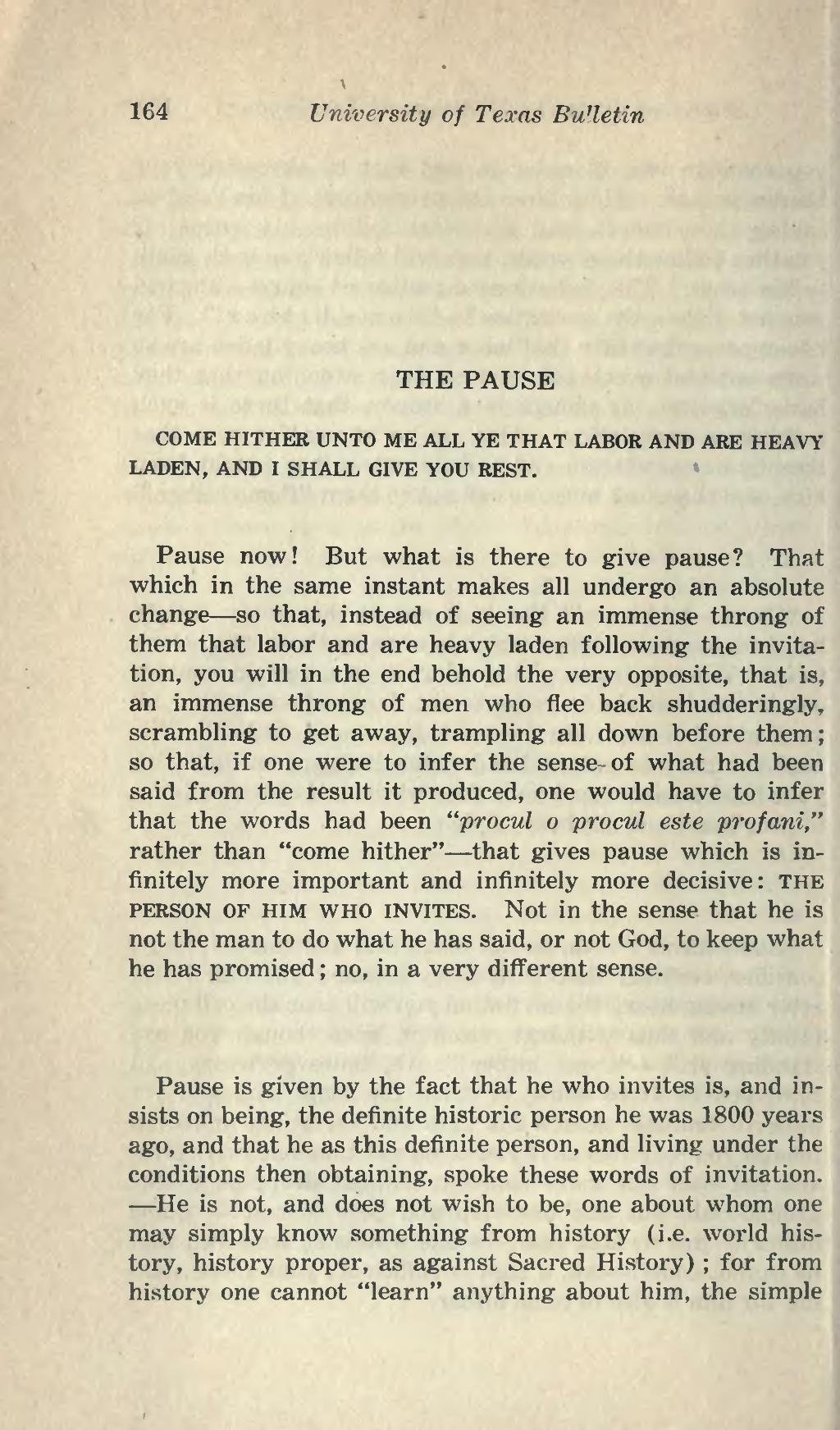The Pause
COME HITHER UNTO ME ALL YE THAT LABOR AND ARE HEAVY LADEN, AND I SHALL GIVE YOU REST.
I
Pause now! But what is there to give pause? That which in the same instant makes all undergo an absolute change—so that, instead of seeing an immense throng of them that labor and are heavy laden following the invitation, you will in the end behold the very opposite, that is, an immense throng of men who flee back shudderingly, scrambling to get away, trampling all down before them; so that, if one were to infer the sense of what had been said from the result it produced, one would have to infer that the words had been "procul o procul este profani", rather than "come hither"—that gives pause which is infinitely more important and infinitely more decisive: THE PERSON OF HIM WHO INVITES. Not in the sense that he is not the man to do what he has said, or not God, to keep what he has promised; no, in a very different sense.
Pause is given by the fact that he who invites is, and insists on being, the definite historic person he was 1800 years ago, and that he as this definite person, and living under the conditions then obtaining, spoke these words of invitation.—He is not, and does not wish to be, one about whom one may simply know something from history (i.e. world history, history proper, as against Sacred History) ; for from history one cannot "learn" anything about him, the simple
